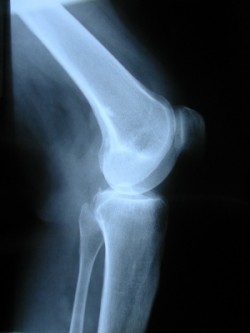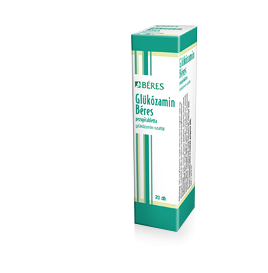Industry slams glucosamine, chondroitin meta-analysis

According to findings published in the British Medical Journal, evidence from 10 clinical trials with 3,803 people with knee or hip osteoarthritis showed that there were no clinically relevant effects of chondroitin, glucosamine, or their combination on perceived joint pain or on joint space narrowing.
Reviewers led by Prof Peter Jüni from the Institute of Social and Preventive Medicine at the University of Bern in Switzerland, subsequently dismissed the need for further research: “We believe it unlikely that future trials will show a clinically relevant benefit of any of the evaluated preparations,” they wrote.
Limitations and ‘convenient exclusions’
Commenting on the meta-analysis, Andrew Shao, PhD, senior vice president, scientific & regulatory affairs for the Council for Responsible Nutrition (CRN) told NutraIngredients-USA that the investigators “conveniently excluded a large portion of the evidence base” on the effects of glucosamine and chondroitin
“The majority of published studies involving glucosamine and/or chondroitin are positive,” said Dr Shao. “Even the GAIT trial, with a 60 percent placebo effect showed that Glucosamine and Chondroitin were effective at reducing pain in knee osteoarthritis patients with moderate-to-severe pain – and outperforming the Rx drug Celebre,” he added.
“Furthermore, both glucosamine and chondroitin are approved drugs for osteoarthritis in various countries in Europe. This surely would not be the case if they were ineffective.
“We also must recognize that consumers have voted with their wallets - choosing to continue to derive benefits from glucosamine and chondroitin supplements, with the category experiencing significant year over year growth over the past decade. If these were ineffective, then we would not observe this kind of growth.
“The bottom line for consumers is that overall the evidence indicates that glucosamine, chondroitin or the combination is effective for improving mobility and joint discomfort in osteoarthritis patients, while also demonstrating a strong safety profile. Consumers should continue to feel confident in choosing glucosamine and chondroitin,” said Dr Shao.
Incomplete job
Daniel Fabricant, PhD, vice president of scientific and global government affairs at the Natural Products Association (NPA) said he did not think the researchers "did a complete job of reviewing all the data at hand or all of the appropriate data given the tool (Bayesian statistics) they chose to use".
"Bayesian statistics, when used properly are allow for the inclusion of observational study data to compare those data along side with RCTs. Bayesian analysis is not predicated on randomization, and can be used to analyze data from observational studies in exactly the same way as for randomized trials... A powerful tool for certain but without looking at all the studies its sort of like driving a corvette and never taking it out of second gear."
Dr Fabricant also said that the reviewers "would be wise to be more discreet in their description of earlier RCTs, especially those with subgroups that did show some improvement. Blanket statements about efficacy are rarely accurate, especially given trials on OA which as they authors state have been conflicting.
"So, when the authors state that more research isn’t needed in this area, that wouldn’t seem to be the most prudent conclusion given that over 20 million Americans suffer from OA in some form and have few options when it comes to relief from OA," he added.
Meta-analysis
Glucosamine and chondroitin, two of the biggest hitters in the joint health segment, do not work for reducing joint pain or impact the narrowing of joint space.
Professor Juni and his co-workers searched the literature for “large scale randomised controlled trials in more than 200 patients with osteoarthritis of the knee or hip that compared glucosamine, chondroitin, or their combination with placebo or head to head”. Of the 58 potentially eligible studies, only 10 met the inclusion criteria. This provided the reviewers with data for 3,803 people with knee or hip osteoarthritis. All studies used doses of at least 800 mg/day of chondroitin and at least 1500 mg/day of glucosamine.
Despite the apparent null effects, scientists state in the British Medical Journal that sufferers of osteoarthritis may continue using the supplements due to the ‘perceived’ benefit on joint health.
“Some patients, however, are convinced that these preparations are beneficial, which might be because of the natural course of osteoarthritis, regression to the mean, or the placebo effect,” state the reviewers, led by Prof Peter Jüni from the Institute of Social and Preventive Medicine at the University of Bern in Switzerland.
In addition, the reviewers support the safety of glucosamine and chondroitin supplements and “see no harm in having patients continue these preparations as long as they perceive a benefit and cover the costs of treatment themselves”, they added. .
However, when it comes to paying for such supplements, Prof Juni and his co-workers are clear that consumers should shoulder the cost, and not national health services or insurance companies.
“Coverage of costs by health authorities or health insurers for these preparations and novel prescriptions to patients who have not received other treatments should be discouraged,” they stated.
Unanswered questions
Despite statements about the lack of need for further research, the reviewers said that any unanswered questions may be answered by the ongoing Long Term Evaluation of Glucosamine Sulphate Study (LEGS). The “industry independent” randomised trial involved 600 patients assigned to one of four groups: chondroitin sulphate, glucosamine sulphate, glucosamine plus chondroitin, or placebo. “First results will become available at the earliest in November 2011,” said Prof Juni and his co-workers.
Source: BMJ
Published online ahead of print, doi: 10.1136/bmj.c4675
“Effects of glucosamine, chondroitin, or placebo in patients with osteoarthritis of hip or knee: network meta-analysis”
Authors: S. Wandel, P. Juni, B. Tendal, E. Nuesch, P.M. Villiger, N.J. Welton, S. Reichenbach, S. Trelle,














